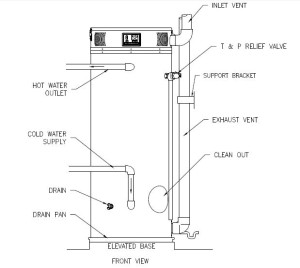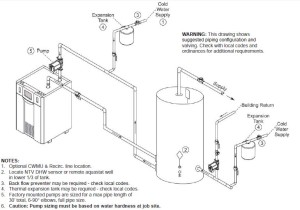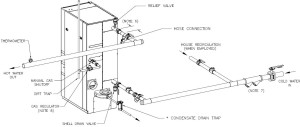Service water heaters may be tank-type heaters, volume water heaters, or tankless heaters. How is the piping in a tankless water heater different from the more traditional methods? Today’s Monday Morning Minute answers this question.
In the last MMM, we examined the difference between the tank-type, volume water, and tankless domestic water heaters. Today we examine the piping differences between them.
Flow Rate vs. Recovery Rate: a Key Difference
In traditional volume water heaters or tank-style heaters, the hot water is stored in the tank and the water used at fixtures comes from the tank. As hot water is used, cold water enters the tank. We depend on stratification in the tank to make sure the hot water remains at the top and cooler water stays at the bottom. When a temperature sensor reaches a preset temperature that’s lower than the supply temperature, the heater starts its cycle to heat the water in the tank.
In traditional volume water heater systems, the fixtures use water in gallons per minute (GPM) but the heater is rated in gallons per hour (GPH) recovery. The heater isn’t designed to match the flow rate. The tank is sized to handle the flow rate and the heater recovers the temperature in the tank.
Piping in a Tankless Water Heater and Volume Water Heaters
Tank-Style Water Heater
In a tank-style service water heater, the hot water is supplied from the tank and the heater charges the tank with hot water. The tank is sized to provide the amount of water needed under maximum fixture demand.
Volume Water Heater
In a volume service water heater, the hot water is supplied from the tank and the heater charges the tank with hot water. The tank is sized to provide the amount of water needed under maximum fixture demand.
Tankless Water Heater
In a tankless water heater, water is supplied from the heater at a constant temperature. The heater is sized for the maximum GPM flow rate that’s expected at the fixtures. No storage is normally used with this system.
Next week we’ll review the energy usage of tankless vs. traditional storage water heaters.




